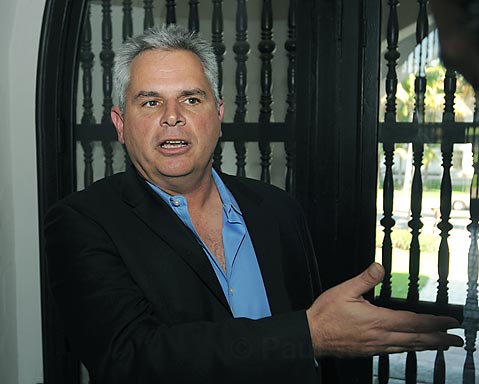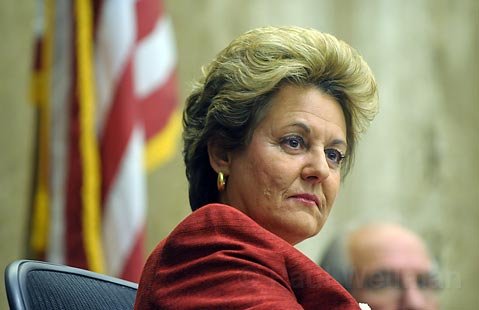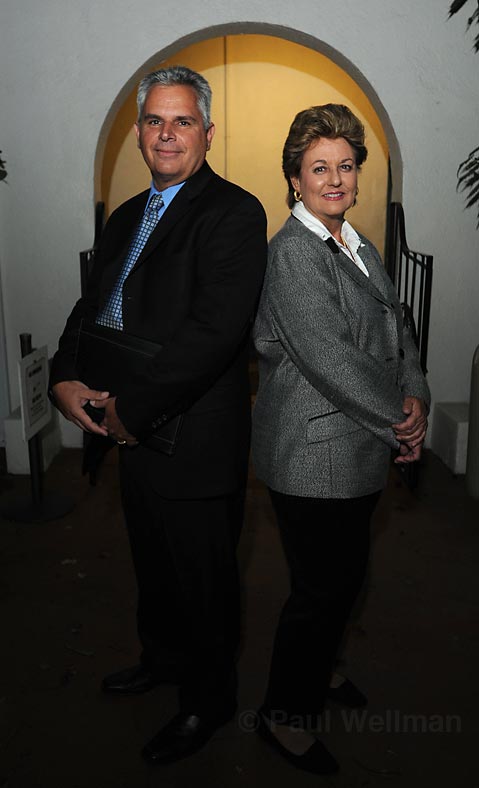Pappas the Persistent
Brings Election Dispute to Appeals Court

Nearly two years after 3rd District Supervisor Doreen Farr claimed victory in the 2008 election by 806 votes out of 35,524 total, and nearly 18 months after a Santa Barbara Superior Court judge struck down her opponent Steve Pappas’s claim that widespread voter registration fraud and errors by the county elections office contributed to that victory, a Court of Appeals will decide once and for all whether Farr lawfully holds her position on the County Board of Supervisors.
As is often the case at the appellate level, Pappas is focusing his claims mostly on the actions of the trial court judge, in this case William McLafferty, who died in January at the age of 70. Pappas claims the court erred in two areas: excluding evidence that showed “massive violations” of multiple sections of the elections code, and concluding that Pappas lacked “standing” to present evidence showing violations of the Help America Vote Act.

The evidence, Pappas claims, was sufficient to change the results of the election. “Both rulings were wrong as a matter of law,” wrote Stanley Green, attorney for Pappas. “The net result was to bar Pappas from presenting at trial evidence showing that illegal votes were cast, due to massive irregularities in the preelection registration drives conducted in September and October 2008.” Of the new registrations, Pappas asserted, thousands were defective and didn’t meet mandatory rules in the elections code.
McLafferty indicated he wouldn’t hear evidence attempting to invalidate voter registration cards collected by a third party and not submitted to the elections office within a three-day deadline. He also said he wouldn’t consider evidence that any third-party registration gatherers might have failed to appropriately fill out a required box. The point, he said at the time, wasn’t to exclude voters on a technicality, especially when it wasn’t the voters’ fault to begin with. The decision instantly eliminated thousands of the ballots in the 18 precincts Pappas was challenging, and effectively ended the trial after four days.

Farr, in her brief filed by attorney Philip Seymour, said the court correctly ruled on the matter and that alleged violations of the “three-day rule” are not grounds for challenging the legality of votes or the result of the election as a whole. McLafferty’s ruling, Seymour writes, is “consistent with the obvious intent of the law.” The majority of Pappas’s legal theories were “just plain dumb,” he writes in a separate brief.
While the margin of victory was not one that was close enough to normally trigger a recount (“not exactly a cliffhanger,” Seymour said in his brief), Pappas asked for just that following the official ballot count in November 2008. He never conceded to Farr, but bankrolled by the über-wealthy Nancy Crawford-Hall—publisher of the Santa Ynez Valley Journal and a rancher—Pappas set off on a quest to challenge the results of the election. A recount turned up one additional vote for Pappas, and he filed suit.
“We won so overwhelmingly on the elections case in superior court with Judge McLafferty,” Farr said. “They didn’t prove anything. It’s really hard to imagine anything different from the appellate court.”
Also being heard Wednesday was an appeal by Farr, who is asking the appellate court to reverse McLafferty’s decision to not award her attorney’s fees. Under the election code, Pappas was required to file suit against Farr, though he is not alleging Farr is directly responsible for the misconduct. As such, she has had to spend upward of $250,000 defending herself. McLafferty found that Farr met two out of three of the necessary conditions to be awarded attorney’s fees: that her actions “vindicated important public rights” and “conferred a significant benefit on the general public or a large class of persons.” What she did not show, was that her action imposed a financial burden that was out of proportion to her personal stake in the outcome. Farr claims McLafferty misapplied that portion of the law.
The three-justice panel was expected to hear oral arguments Wednesday afternoon in Ventura. The court has up to 90 days to issue its decision, which can be appealed to the California Supreme Court.



